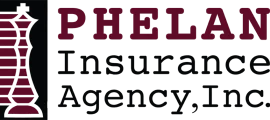The commercial property insurance market has faced rising premiums since 2017. While such rate jumps showed some signs of slowing in 2022 by largely remaining within single digits, this moderation didn’t last in 2023. According to industry data, commercial property insurance premiums surged by an average of 20.4% in the first quarter of 2023 alone. In the latter half of the year, the segment recorded the highest average premium jumps across all lines of commercial coverage at 18.3%. These conditions are primarily the result of another intense season of natural disasters, inflation issues and an increasingly volatile property valuation landscape. Losses stemming from these trends have forced commercial property insurers to continue increasing the majority of policyholders’ premiums and introducing more restrictive coverage terms.
Looking ahead, insureds who conduct high-risk operations, have poor property management practices or are located in natural disaster-prone areas will likely remain susceptible to ongoing rate hikes and coverage limitations.
Trends to Watch
Natural disasters – Extreme weather events often leave behind severe property damage. As such, the rising frequency and severity of these catastrophes have continued to pose concerns in the commercial property insurance market. Research platform Bloomberg Intelligence reported that 2023 marks the fourth consecutive year in which global insured losses resulting from natural disasters are projected to exceed $100 billion. In addition, convective storms (e.g., thunderstorms, tornadoes and hailstorms)
surged this past year, contributing to 68% of all weather-related losses in the first half of 2023, according to industry data. Many climate experts predict that natural disaster trends will continue to exacerbate commercial property losses in the future.
Inflation issues – Like other lines of coverage, the commercial property insurance segment has been impacted by inflation issues in recent years, prompting higher premiums and claim expenses when losses occur. These issues have been brought on by a combination of fluctuating material demand, supply chain complications, surging prices for building resources and rising labor costs across the construction sector. Although increased material costs and wage growth trends have certainly softened since their peak in 2021, they continue to exceed pre-COVID-19-pandemic levels, affecting property repair and replacement expenses and related claims.
Insurance-to-value (ITV) considerations – In light of current inflation issues, ensuring accurate property valuations has proven to be a difficult feat. After all, these valuations are tied to the latest building material prices, which have become more volatile over the years. In response, insurance experts are encouraging businesses to be more diligent in performing correct ITV calculations and maintaining ample commercial property coverage; some insurers have even introduced specific ITV standards for their policyholders. An accurate ITV calculation represents as close to an equal ratio as possible between the amount of insurance a business obtains and the estimated value of its commercial building or structure.
Reinsurance capacity challenges – As natural disasters become more severe and inflation sits at elevated levels, commercial property reinsurers are facing a rise in claims and diminished profitability. Consequently, some reinsurers have lowered capacity for catastrophe (CAT) exposures and hiked up primary insurers’ premiums. Certain reinsurers have also introduced sublimits and revised their policy wording to establish more distinct coverage restrictions. Although demand for reinsurance remains high, capacity will likely become further constrained in 2024, therefore impacting overall commercial property
insurance limitations and costs.
Tips for Insurance Buyers
- Keep your commercial property in good condition at all times and immediately address building issues that could lead to losses and subsequent claims. Provide all relevant loss control documentation to your insurer.
- Analyze your organization’s CAT exposures. If your commercial property is located in an area more prone to certain types of natural disasters, implement adequate mitigation and response measures.
- Ensure accurate ITV valuations. From there, determine whether you need to adjust your organization’s policy limits to avoid underinsuring your commercial property and facing coinsurance penalties.
© 2023 Zywave, Inc. All rights reserved.

